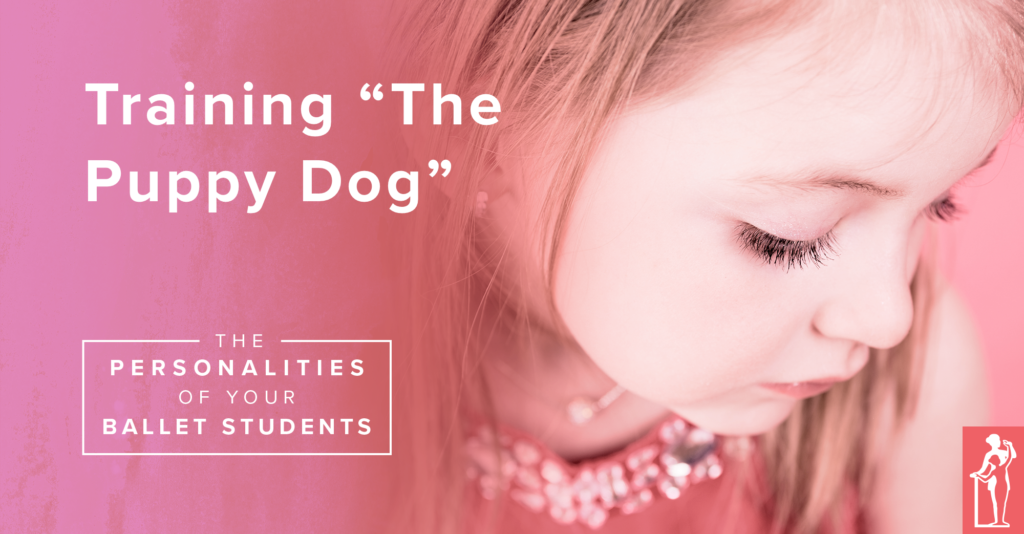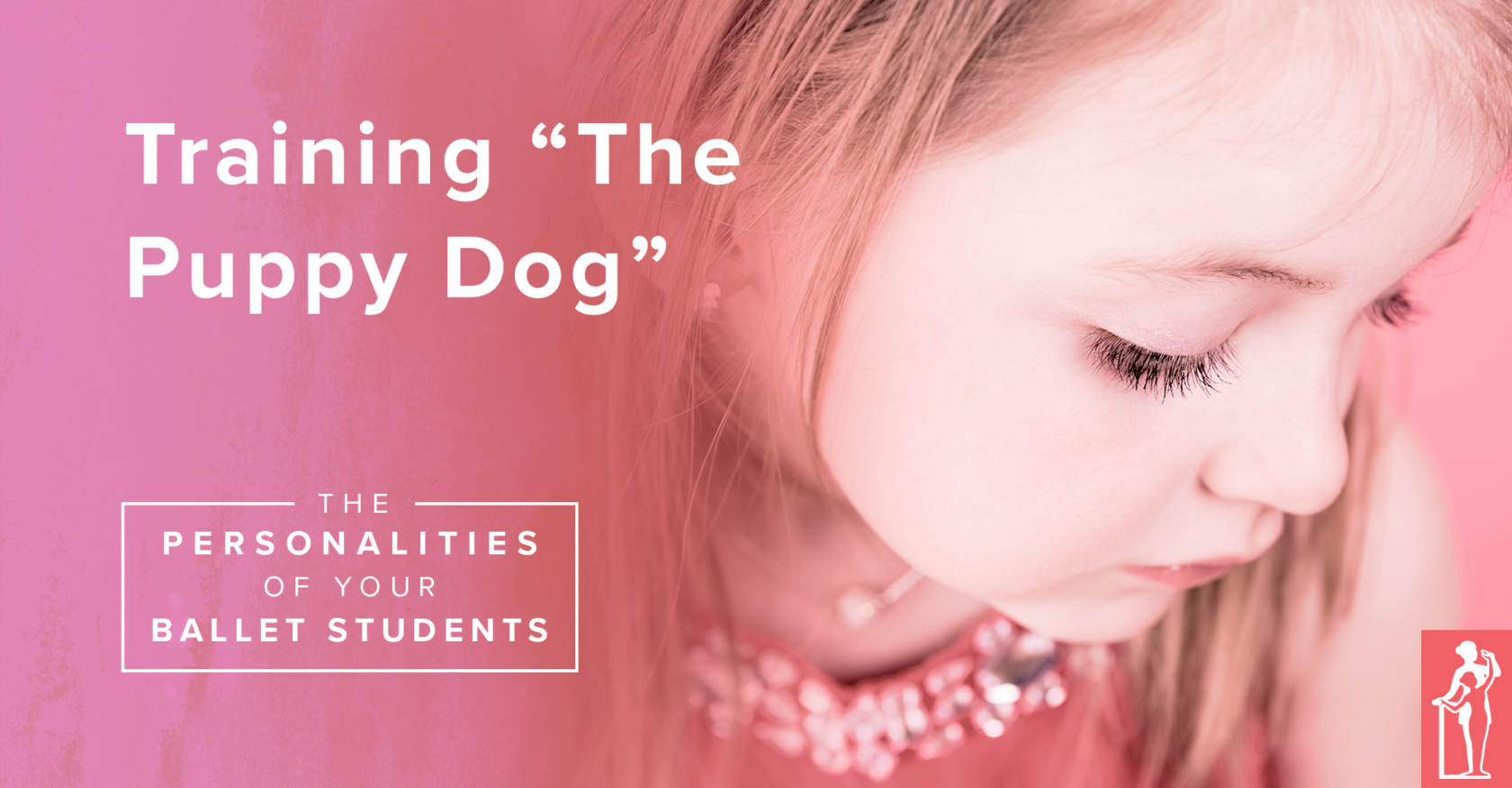
Have you ever corrected a student and received an emotional breakdown in response? If you haven’t yet, you most likely will at some point. Children, just like adults, carry around quite a bit of baggage, and that baggage, unfortunately, can leak into your classroom.
The Puppy Dog
I taught an intermediate level ballet class last year (9-11 year olds), and there was one particular class where a student teetered right on the edge of tears. I had shown the exercise, demonstrated, allowed the students to practice on their own, and then I turned on the music. This student was very nervous about this step, and hurried through the exercise so quickly, that she didn’t realize she was actually just running across the room as fast as she could so as to avoid being seen. I have to admit, I found it quite funny that she actually thought I would miss that.
I called her name and asked her to try again. Again, the same scenario played out. When I stopped the music, she was beet red. I explained that she should take her time and just try to focus on doing the steps, not on getting across the floor. It is interesting how my words, in my mind, can mean one thing, and to her it’s like saying, “You are the worst student I’ve ever seen! I can’t believe you can’t do this! Are you stupid?” Noticing her stress, I backed off and said, “We all mess up. It’s ok to mess up. I would you like to you try again, and this time just focus on what you’re doing, not on getting off the stage.”
Was she perfect after that? No. Did she walk away having learned a lesson? I think so. Just because the student cowers away with her tail between her legs, doesn’t mean that she didn’t totally deserve to be corrected and properly guided through how to fix herself. What we must be careful not to do is harm her self-esteem by saying things to her that may cause her to believe she can never do it right. It’s all about balance.
Negatives
The Puppy Dog is actually, legitimately afraid of correction. When she does something incorrectly, she looks at you out of the side of her eye and makes sure you haven’t seen her. This type of student will do her very best in class to avoid detection. She may break down and cry when you correct her, and she is extremely sensitive to any advice you may give her in class. Think about what must be going on in her life for her to be acting this way. Perhaps her family life or something traumatic in the past has made her afraid of adults. She may be dealing with self-worth issues because of what she’s been told by someone she trusts. There could be great hurt in her life, so resolve to be a healing force for her. The overall mood of the classroom will change drastically when The Puppy Dog drops into her “tail between the legs” mood. Her head drops, her hands come together and she avoids your gaze at all costs. The other students will stop everything to observe how you deal with the situation. Many will feel sorry for The Puppy Dog or maybe even become sad and cry as well, if they are younger.Positives
Though The Puppy Dog’s reason for the fear is not a good one, her fear of failure causes her to try really hard in class. She comes to class with the proper attire, shoes and hair fixed every time. She hates to be late, so she will often insist to their parents that they arrive 10 minutes early. Perfectionism reigns in The Puppy Dog’s world. She is very passionate about dance, and about most things in life. Her highs are very high, and her lows are very low. Be aware that your words impact her little spirit deeply, whether for the good or the bad. This can play out wonderfully because she can be more expressive, creative and real in class and on the stage. She loves to follow. Leadership is scary since the possibility of failure is so high. Put her second in line or give her the job of “caboose” so that she always someone to copy. Though she is absolutely capable of leading, she will not be emotionally stable enough to lead until she is much older.How Can I Carefully Train Puppy Dog?
There is a very important life skill that you may need to teach The Puppy Dog called “Framing”. It is the idea that every situation can be framed differently. She may respond a certain way to something and find herself in deep despair about it. You can help her by telling her to “re-frame” the situation. Example: She is following everyone in her line, but she eventually falls behind and gets very sad that she couldn’t keep up. You can tell her: “I know that you had to work very hard to catch up with everyone, but I saw how well you were marching before that, and I was so proud of you. You make me smile!” This completely changes the situation for her. Now, she is proud of herself and she can move forward. Responding well to things will be the biggest and hardest lesson she will have to learn. You may find that it takes her a very long to master this skill. The younger she is, the harder it will be for her. The older she is, the easier it is to explain the concepts and the more you can encourage to “be strong,” or “be a big girl,” etc. Turn her darkness to light with proper emotional intelligence training.Read about the other personalities . . .
DISCLAIMER: Not all students can be categorized in this way. It is not my intention to box anyone in to a certain personality type, and not all the advice I give in this article will work on every student. Each one is made up of a different blend of personalities and will respond differently the advice given here.


Comments
No comments for this post.
Add Comment